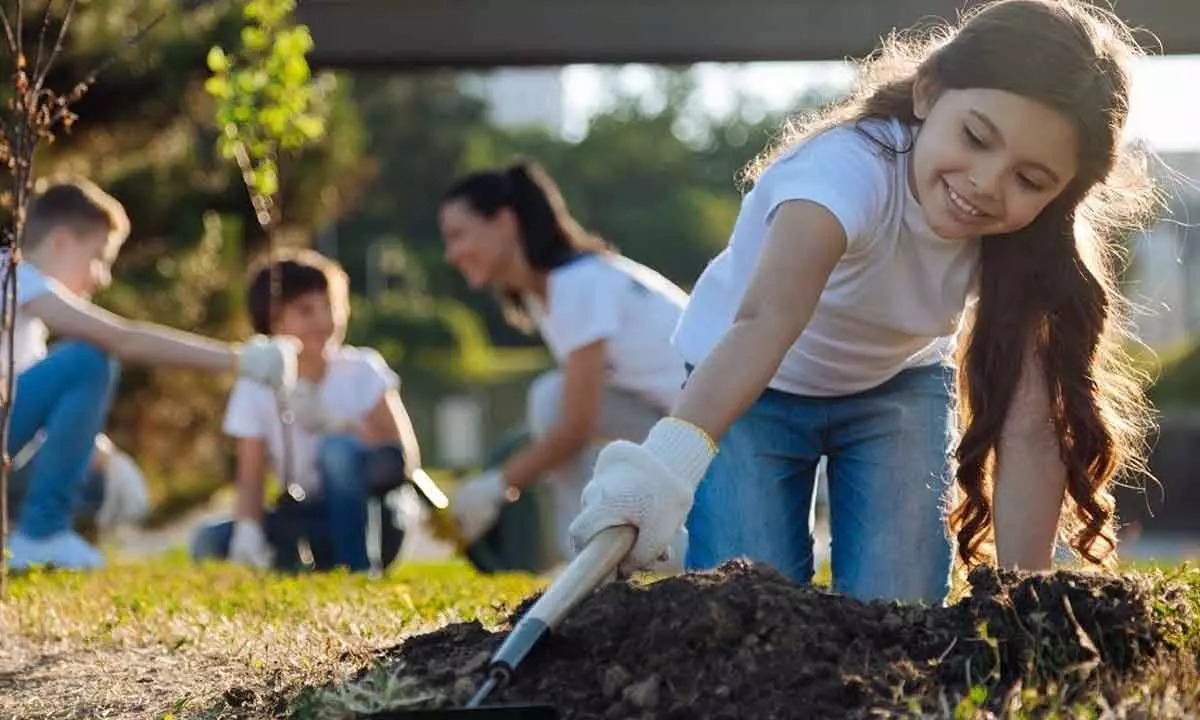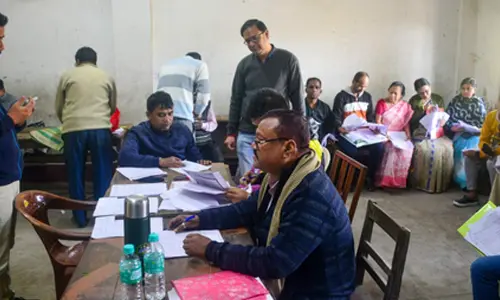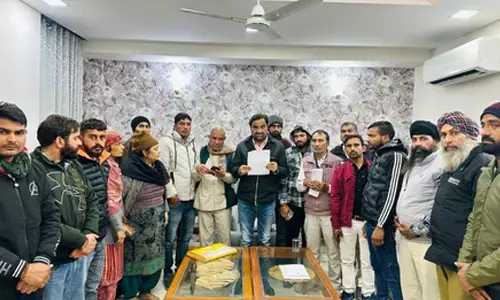Today is World Environment Day: A case for Inspiring students to innovate for a greener future

Providing resources such as technology, funding, mentorship, and research facilities enhances students’ ability to innovate. Collaborations between educational institutions, government bodies, and industry stakeholders bridge the resource gap. Initiatives like the Atal Innovation Mission support students in transforming ideas into reality, fostering innovation and entrepreneurship for a greener future.
World Environment Day serves as a platform to raise awareness about pressing environmental issues and mobilize individuals and communities towards sustainable practices. With each passing year, the need for sustainable solutions becomes more evident, as the impacts of climate change and ecological degradation continue to threaten our planet’s well-being. By actively involving students in this endeavor, we empower them to become environmentally conscious citizens who can shape a sustainable future.
According to the Annual Status of Education Report (ASER) 2022, an increasing number of schools are incorporating environmental studies as a core subject, highlighting the growing recognition of its importance. Such initiatives not only equip students with knowledge about environmental issues but also empower them to develop innovative solutions to address these challenges.
By inspiring students to innovate for a greener future, we not only shape responsible and environmentally conscious citizens but also nurture a generation that will actively contribute to sustainable development.
The significance of involving students in environmental initiatives
Harnessing youth power is crucial for addressing environmental challenges. India, with a large population of young individuals, can make a significant impact on sustainability. The Ministry of Statistics estimates India’s youth population (15-24 years) at 245 million, representing a valuable demographic for driving change.
Involving students in environmental initiatives taps into their enthusiasm, energy, and idealism, channeling it towards innovative solutions and sustainable practices. Engaging students in such initiatives cultivates responsibility and environmental consciousness.
A study by the NCERT showed that participating students exhibited higher empathy, responsibility, and awareness about ecological issues, shaping them into conscientious citizens who prioritize sustainability. Furthermore, involving students in environmental initiatives encourages creativity and critical thinking, fostering problem-solving, collaboration, and resourcefulness. These skills are essential for addressing complex environmental issues and finding sustainable alternatives.
Promoting environmental education in schools
Integrating environmental topics into the curriculum ensures students receive a comprehensive education with a focus on sustainability. The National Curriculum Framework for School Education by NCERT emphasizes environmental education and encourages its incorporation in various subjects. By integrating topics like climate change, biodiversity, and conservation, students gain a deeper understanding of environmental issues and their interconnectedness with other disciplines.
Workshops and seminars on sustainability enrich students’ understanding and engagement with environmental topics. These events provide a platform for experts, environmentalists, and educators to share knowledge and experiences, inspiring students to take an active interest in environmental conservation. Covering renewable energy, waste management, and sustainable agriculture, these workshops equip students with practical knowledge, empowering them to make informed choices.
Establishing eco-clubs and promoting student-led initiatives encourage active participation and ownership. These clubs provide a space for collaboration, planning, and implementing environmental projects within schools and communities.
Inspiring innovation for a greener future
Showcasing successful student-led environmental projects inspires others and demonstrates the potential for positive impact. Reports from organizations like CSE and Green Schools Programme highlight students initiating recycling programs, designing eco-friendly buildings, and implementing sustainable practices.
Encouraging problem-solving and brainstorming sessions fosters critical thinking and collaboration. NITI Aayog promotes an innovation-driven mind-set through hackathons and workshops, enabling students to develop creative solutions for environmental challenges.
Fostering collaboration and partnerships
Engaging with local environmental organizations is a valuable way to connect students with real-world sustainability initiatives. Reports indicate that numerous organizations in India are actively working towards environmental conservation and sustainable development. By partnering with these organizations, educational institutions can provide students with opportunities to participate in field visits, volunteer programs, and hands-on projects. These experiences not only deepen students’ understanding of environmental issues but also foster a sense of community engagement and responsibility.
Creating platforms for knowledge sharing and networking is essential for fostering collaboration. Conferences, seminars, and symposiums focused on environmental sustainability can bring together students, educators, researchers, and professionals to exchange ideas, share best practices, and explore innovative solutions.
Celebrating achievements and recognizing young environmental leaders
One effective way to celebrate achievements is by highlighting student success stories and initiatives. Reports indicate that across India, students are taking remarkable steps towards environmental conservation. By showcasing these stories through media coverage, newsletters, and social media platforms, we not only recognize the efforts of young environmental leaders but also inspire others to follow in their footsteps. Sharing their stories provides a platform for students to share their experiences, ideas, and solutions, amplifying their impact and motivating others to take action.
Awarding outstanding contributions to environmental conservation is another way to recognize and encourage young environmental leaders. By establishing awards and recognition programs, educational institutions, government bodies, and environmental organizations can acknowledge the exemplary efforts of students who have made significant contributions to sustainability. These awards serve as a form of validation and encouragement, boosting the confidence and motivation of young environmental leaders and inspiring others to emulate their dedication and achievements.
(The author is Director at Eros Group)














